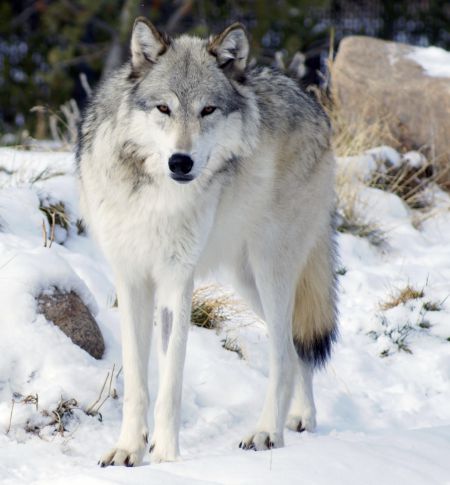KJIPUKTUK (Halifax) - I spent this Oceans Day weekend inside, maintaining an educational booth in Halifax’s Museum of the Atlantic and the Museum of Natural History, pestering passers by with information on the critically endangered blue whale and whichever other species I could bring up.
Let me first say these two facilities are wonderful storehouses of knowledge. In the Museum of Natural History, for example, I was able to reference the giant blue whale rib bone towering over their marine gallery during my talk. It was helpful when describing the incredible size of this animal.
In the several dozen conversations struck up over my modest booth that weekend, there was one misconception I found myself confronted with again and again. Whether I was talking about whales or any of the other endangered species I try to represent, people were under the impression Atlantic Canadian ecosystems were better off without their dominant predators, species we hunted with brutal efficiency decades or centuries ago.
When asked her opinion on whales, for instance, one woman replied, “I could take them or leave them.”
In the minds of too many people, dominant predators like whales, sharks, wolves and the like serve no important function in their respective ecosystems, only feeding on its bounty and robbing us of fish or game which could have otherwise been ours. But it’s more complicated than that.
For decades now the Japanese government has justified their slaughter of whales by claiming these gentle giants are overpopulated...and are therefore damaging the fisheries of the world. This is, of course, ridiculous. A study published early last year showed that, in reality, there’s an extraordinary and mutually beneficial relationship between whales and the fish they eat. Contrary to the more whales = fewer fish theory, it was discovered whales contribute to the oceans in ways never before imagined.
By eating large quantities of krill and small fish like herring and capelin, whales produce unspeakable amounts of fertilizer (poop) and spread those nutrients across vast swaths of ocean. This fertilization results in photoplankton blooms which, in turn, feed and strengthen the entire ocean ecosystem. In summery, more whales = more fish.
In the case of sharks, they feed on the weak or sickly fish in their territory, preventing the spread of disease and keeping smaller predators in check, lest they destabilize the entire ecosystem.
Now consider land predators like cougars and wolves, which prey/preyed on the herbivores of Canada and the United States. Where ecosystems have been rid of these predators, the herbivores have overpopulated as a result, devastating their forests or grasslands with overgrazing. The role of these predators is so critical and complex that entire rivers and forests have stagnated in their absence. This happened in Yellowstone National Park, but following the reintroduction of wolves in 1995, the forests bloomed anew and the river came to life once more.
There are a thousand examples of these bizarre and counterintuitive relationships in nature. The work of myself and others to protect species at the top of the food chain is not done for sentimental reasons. These predators are essential to the regions they inhabit and when we dismiss them as blood-thirsty monsters or gluttonous thieves, we do the natural world a disservice.



